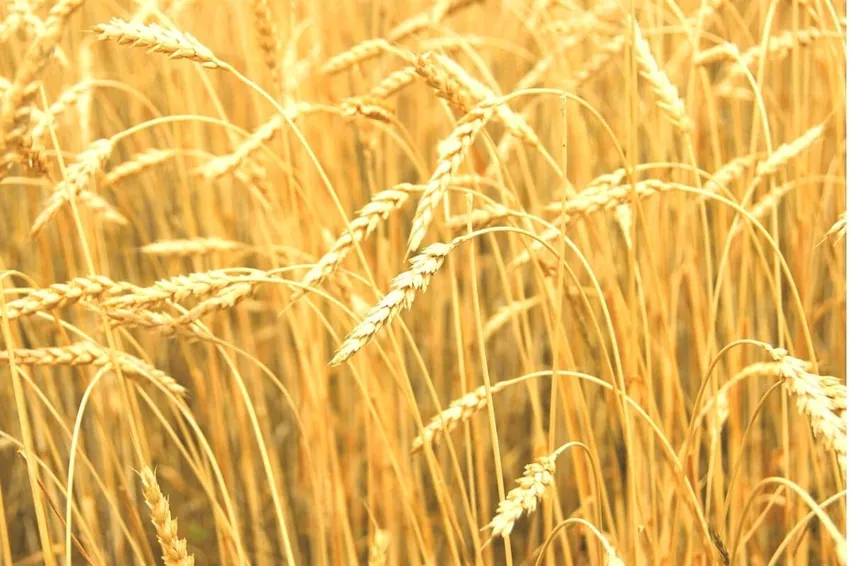- Garden quotes or garden wisdom?
- pawn rules
- Practical gardening wisdom
- Thoughtful gardening wisdom
- frequently asked Questions

Gardening is one of the most popular leisure activities these days. However, there is sometimes uncertainty about what to plant or when to water. Gardening wisdom can help with this. We have selected a few for you.
In a nutshell
- Garden wisdom gives practical advice
- Farmer's rules best known
- not all are correct
- also thoughtful wisdom
Garden quotes or garden wisdom?
The difference between proverbs, quotes and wisdom is only one of degree. Basically, all forms denote sayings or statements. In contrast to proverbs and wisdom, quotations usually have a designated author. But there is no clear separation. Especially (folk) wisdom and proverbs have a very close relationship to each other. Wisdom is most likely to be identified through the following factors, which also apply to our garden wisdom:
- applicable to everyday situations
- solutions to practical problems
- mostly author unknown
- mostly easy to remember
 Garden wisdom can give helpful tips.
Garden wisdom can give helpful tips.
pawn rules
The most well-known wisdom in this country are the farmer's rules. Due to the rhythmic structure, the German wisdom is very memorable. The farmer's rules have been passed down for a long time and provide useful advice for everyday life. Peasant rules primarily relate to the weather or farming. However, the wisdom can also be easily applied in the garden.
The farmer liked the September rain a lot.
April snow brings grass and clover.
A cold December with heavy snow is followed by a fruitful year with plenty of clover.
August rain acts like poison when it hits the ripening grapes.
Tree blossoms even in November, has never been a good sign.
If the ash blossoms before the oak, there is a great bleaching (= dry summer),
when the oak blooms before the ash, there is a great wash (= rainy summer).
If the trees blossom again in November, then winter lasts until May.
If July brings hot embers, September turns out well.
If October brings a lot of rain, it's a blessing for the fields.
If November brings dawn, the sowing then threatens much damage.
A lazy, damp March is every farmer's pain.
A wet February brings a fruitful year.
 A rainy February is considered a bad omen.
A rainy February is considered a bad omen.
A strong July thunderstorm is good for winegrowers and harvesters.
February with frost and wind makes the Easter days mild.
Thunderstorms in May bring fruit.
If there is a wind from the east in January, the earth slowly freezes.
If there's thundery weather in June, the grain will certainly get fatter.
If there is too much rain in March, the harvest will bring little blessing.
If the tree keeps its leaves long, a late winter is frightening.
If October doesn't help with the sun, the vintner isn't happy.
Snow and frost in December promises lots of grain and cider.
In January a lot of Muckentanz spoils the forage harvest completely.
In July must roast from the heat, which in September should be advised.
In September, the pears stuck to the stem, the winter cold brings a lot.
If February is dry and cold, in March the heat will come soon.
If May is cool and wet, it fills the farmer's barn and barrel.
If May is quite hot and dry, the farmer gets small chunks.
January without snow hurts trees, mountains and valleys.
January must be cracking with cold if the harvest is supposed to slump well.
January dry and rough, good for grain cultivation.
 A hard January favors grain growth.
A hard January favors grain growth.
The sooner the blackthorn blooms in April, the earlier the farmer goes to harvest.
July nice and clear gives a good farming year
If ice and snow creaks in January, there's a lot of grain and clover for the harvest.
Rain in May brings bread and hay for the whole year.
If you sow too early in March, the effort is often in vain.
September warm and clear bodes well for next year.
If you see yellow flowers outdoors in March, feel free to sow your seeds.
If it rains in August, it rains honey and good wine.
If the grass grows in January, it's in danger in summer.
What August could not do, September no longer cooks.
What doesn't grow in June belongs in the oven.
When beechnuts grow well, nut and oak trees are full, a hard winter follows and snow falls in heaps.
When April blows its horn, hay and corn are in good shape.
When the north wind blows in June, the corn is in good shape for harvest.
When the violets bloom in March, on Ludwig (August 25) the swallows often fly.
 Violets can also be useful hints in garden wisdom.
Violets can also be useful hints in garden wisdom.
Those who do not turn down the fields in November will be shortened next year.
March dust brings grass and leaves.
Practical gardening wisdom
But there are also other garden wisdoms that are regarded as a fixed code in a sufficient sense. Despite their status, these gardening wisdoms are not always true. You have probably already heard some of them:
brown lawn is dead (partly true)
drought-resistant plants don't need water (wrong)
freshly planted plants need to be watered well (true)
Vegetable seeds should be sown in spring. (partly true)
Watering in full sun damages the leaves (wrong)
 Some garden wisdom should be checked first.
Some garden wisdom should be checked first.
always water a lot (wrong)
You have to sow lettuce every two to three weeks in order to be able to harvest continuously (partially true)
wait until after the ice saints to plant (mostly true)
press the soil firmly after planting (wrong, just lightly)
newly trimmed areas must be sealed (wrong)
Cut shrubs only in winter (wrong)
tip: Check the information before acting on such sayings.
Thoughtful gardening wisdom
Garden sayings and quotes that stimulate thought can also be called wise. It is often not clear at first glance what wisdom wants to say. Only after thinking about it for a few minutes does the deeper meaning become apparent.
Even under difficult conditions, beautiful things can flourish.
(author unknown)
To the sad every flower is a weed, to the happy every weed is a flower.
(From Finland)
The best fertilizer is the gardener's shade
(author unknown)
But like the garden with the plan, the plan grows with the garden.
(Berthold Brecht)
It is not enough to talk to the plants, you also have to listen to them.
(David Bergman)
Gardening is the work of a lifetime; you never finish
(Oscar de la Renta)
The more furrows, the more grain.
(From England)
Only those who take good care of the garden know that it bears fruit.
(From Germany)
Beautiful flowers grow slowly, only the weeds are in a hurry.
(William Shakespeare)
 Gardening also requires patience - gardening wisdom can help.
Gardening also requires patience - gardening wisdom can help.
If you want to harvest the best fruit, you have to climb the tree. If the dented ones are enough for you, you wait for them to fall down.
(Jeremy A. White)
Whoever plants much and does not take care of it, will not be well rewarded for his effort.
(From Germany)
You can bury a lot of troubles by digging in the dirt.
(author unknown)
tip: Not only do we have wisdom about the garden, the garden itself also gives us its wisdom. Next time you're in the garden, think about what he might say to you?
frequently asked Questions
How did the peasant rules come about?The pawn rules mostly come from the time of the Middle Ages and are based on accurate observations across generations. These were important in order to be able to assess the weather and thus achieve a rich harvest.
Do the pawn rules correspond to the current situation?In general, the peasant rules are still valid today. However, regional weather influences and the calendar reform of 1582 must be taken into account. The latter extends the year by 11 minutes. Over time, the pawn rules have shifted about 10 days since their inception. The rule that applied at the time for June 27th therefore applies today on July 7th. Due to the effects of climate change, the farmer's rules may change.
Can I orient myself to the wisdoms as real advisors?Partial. On the whole, the wisdom applies, but not unreservedly. Garden wisdom is therefore suitable as a guide; you should not rely entirely on it. If you want to be sure that you are doing everything right, you should consult a garden guide.